#cause i find at the end of the day i don't need as much sodium as when im out and about
Explore tagged Tumblr posts
Text
witnessed myself go from a dehydrated husk of a corpse to a nearly functional adult human after drinking a liter of electrolyte beverage in less than an hour so i guess that's confirmation that my Staying Super Hydrated technique has merit
#i let myself get more dehydrated than i should have between last night + this morning and i paid for it#i still drank but it was with a lower sodium electrolye mix#cause i find at the end of the day i don't need as much sodium as when im out and about#BUT that means when i wake up i dont have a good sodium source near my bed#so i need to rethink my game plan 🤔#at least on days like this where i have the morning off & don't immediately get up & go to work & start hydrationmaxxing
7 notes
·
View notes
Note
not be suuuuuuper annoying but the concerns raised about aspartame by the WHO are almost entirely regarding its potential carcinogen status and not seizures. specifically, as a "possible" carcinogen, group 2B, which, while very far removed from confirmed carcinogens, becomes a very real concern because some people consume aspartame in very large quantities on a daily basis, like 12 cans of diet coke a day, no problem.
so yes, there's a great deal of ridiculous charlatan-style behavior surrounding aspartame, but that's not really related to the actual research being done. we can't look to rodent studies as the end-all-be-all, and even human observational studies dimly linking cancer to aspartame must be taken with a huge grain of salt, because, again, observational study, but when it comes to super-long-term-consumption of an ingredient and the potential for cancer, it's not unreasonable to evaluate your personal risk tolerance and decide it's not a bad idea to reduce or eliminate aspartame from your diet
tldr (do people still use this term?): the actual concerns about aspartame aren't about sensitivity or seizures and it cannot be conclusively said to be completely safe, but at the same time it's not a huge deal especially if you don't ingest that much of it regularly
sorry for being so annoying about this shit :( <3
So that report came out a year after I had started doing the research so it obviously didn't come up in my original deep dive and the WHO's findings on aspartame as being possibly carcinogenic are pretty much in line with prior recommended limits on aspartame consumption.
I'm not going to deny that there are some people who consume 12 cans of diet sodas a day, but I do want to point out that people who are consuming 12 cans of diet soda are drinking more than a gallon of soda each day. This is a tiny number of consumers (the vast majority of consumers drink 16oz or less a day of *any* kind of soda, diet or otherwise). At that point you don't just need to worry about the aspartame, you need to worry about what that's doing to your sodium intake as a much more proven risk (12 cans of diet coke a day gives you about half a gram more salt than would otherwise be in your diet), or be concerned about the possible connection between artificial sweeteners and metabolic syndrome.
And I really just cannot emphasize enough that the vast, vast majority of people aren't consuming more than 5 cans of diet soda daily, let alone 10 - aspartame consumption among people who use aspartame is in the 5-13mg/kg range, not in the 40-50mg/kg range except for a few very rare cases.
Humans are bad at risk assessment. People look at the IARC reclassification and look at their own (typically very small) aspartame consumption, and will stop drinking diet drinks (and will often tell other people to stop drinking diet drinks).
Drinking somewhere in the neighborhood of a gallon of diet soda each day is possibly carcinogenic, or at the very least *not provably not cancer-causing* and people have been talking about it and writing thinkpieces about it and the anti-aspartame crew has been insufferable about it since July made.
So what has happened here is that a very reasonable organization has made a very reasonable category change to a chemical that switched it from "known not to cause cancer" to "not known to not cause cancer" and the anti-aspartame crew has continued to list cancer, and neurological problems, and seizures, and a whole host of other things as the results of aspartame consumption.
And, like, I'm not calling these people charlatans for this paper but jesus christ:




Actually maybe I am going to call these people charlatans. This all links back to the "aspartame metabolizes as formaldehyde and poisons you" thing (which a lot of the extremely suspect research on aspartame does).
People are *absolutely* still doing research into the more absurd claims of anti-aspartame activists. This paper was published *this month* (and relies on the self-reported memories of mothers of autistic children to recall how much aspartame they consumed during pregnancy, which is not going to be a *great* set of data to analyze)
But anyway, before I go down that rabbit hole, let's get back to cancer and cancer risk. It is, of course, totally okay for you to look at the designation of aspartame as a 2B substance and decide that you don't want to use aspartame anymore, that you think it's too much of a risk.
You know what's in IARC category 2A, or probably carcinogenic to humans?
Drinking hot tea. Or coffee. Or water. Or cocoa.
Drinking liquid over 65 degrees Celsius/ 149 degrees fahrenheit is biologically plausible as a cause of cell damage that may lead to cancer. There is more evidence of this connection than the connection between aspartame and cancer.
You know what we called 150 degrees when I was working at the coffee shop? Kid hot. Because that's how hot you can make hot cocoa for kids so it is warm enough to be hot cocoa but won't burn their tongues. If you serve most adults coffee or tea at 150 degrees they'll consider it cold (or at least not as hot as a hot drink should be). Starbucks doesn't serve hot coffee at under 165F and if you ask for extra hot it'll be closer to 180.
The IARC report listing hot beverages as category 2A means that it's not unreasonable to evaluate your personal risk tolerance and decide it's not a bad idea to reduce or eliminate liquids over 65C from your diet.
But nobody is doing that.
Basically more research needs to be done on everything and you're not being annoying, the way that human brains work and assess risk and set up phantoms to get scared of even when there are much bigger and realer risks (like consuming any amount of alcohol on a regular basis) that people are perfectly willing to overlook.
It's like being afraid of plane crashes but cheerfully getting in your car for a 20 mile daily commute with no concerns or worries because it's something you do every day.
Brains! They're annoying!
220 notes
·
View notes
Text
this is where I'm currently at w my dry eyes flare up:
current routine is eye ointment (oil based) morning + night, preservative free hylo-forte (sodium hyaluronate) drops as needed, carbomer gel also as needed but as sparingly as possible bcos it's not preservative free. I'm also doing 10 minute warm compresses 3-4 times a day.
I'm also using moisteriser around my eyes a lot + mild steroid cream twice a day due to skin irritation which I think is being caused by the volume of eye drops I'm using.
trying to transition to a preservative free carbomer drop as the carbomer is currently the only thing getting me any significant relief but the only brand I've been able to try so far (Ocufresh) is no good.
any eye drops that contain preservatives or aren't specifically marketed as high intensity/for severely dry eyes are no good rn, a lot of them make my eyes start stinging and burning. I've tried Systane Complete and Thealoz Duo this week neither of which offered any relief but I'm going to try and stick with the Thealoz drops a couple of times a day as they've got some extra meds in them.
I've ordered every other brand of preservative free gel drops I can find.
I've started taking antihistamines as it struck me that the current difficulties started around about the same time I stopped taking them for seasonal allergies so will see if that does any good. I've also just started taking fish oil supplements.
I've had my eyes examined by my regular optometrist (Specsavers unfortunately) and spoken to a different optometrist practice who have a specialist dry eye practice and have got some actionable advice that I'm following. Both optometrists have agreed that there's no sign of anything actively wrong with my eyes such as an infection.
I've dusted & aired out my whole flat and have ordered a humidifier but it won't arrive till tommorrow.
I'm reducing screen time as much as I can but due to being a full time hybrid office worker that essentially means I'm doing as little work at my job as I can get away with. I had to do a full 8 hours in front of the computer on Monday and it fucked up my eyes so badly that I didn't cover from it all evening.
I can currently manage maybe 10-20ish minutes in front of a computer before things start getting progressively more uncomfortable with the end result being blurred vision.
I've had flare ups of this severity or even worse in the past but usually it takes me maybe 2-3 days of stepping up my eye drops and doing regular warm compresses to get it back to a manageable level so the fact that this time it's been over a week with basically 0 relief is very very scary. I'm getting concerned about my job as I can't do full time office work if I can't use a computer & I have no other employment prospects.
the 20:20:20 rule isn't currently hugely helpful for me due to how dry my eyes get using a computer and I've been advised by an optometrist that I need to take full breaks at least once an hour.
absolutely exhausted & honestly can't tell if it's the fatigue I had previously flaring up or if I'm just That Stressed Out.
feel like I'll regret throwing this problem out for advice as asking for medical advice on tumblr never goes well but figure it's worth a shot in case I'm missing something obvious here!!
I'd ask that you don't reply if you haven't read all of the above ^ in case whatever you're suggesting is already mentioned & that you don't recommend things that work for you unless you also have severely dry eyes.
:'(
36 notes
·
View notes
Text
OP my dad was a dentist and I worked in his office so I've picked up a bunch of advice. Hopefully some of this will be useful in speed running teeth brushing.
If you only ever have energy for one, flossing gets more done than brushing. If brushing is intolerable but flossing isn't so bad, you should honestly be pretty good just flossing. Get floss that looks like flat ribbons rather than string.
Corollary to the above but if you're not used to flossing and you start it is totally normal for it to hurt and you may bleed. I know, not what anyone wants to hear. Without attention your gums can become inflamed from existing debris even if they don't look it. Your gums will get with the picture. (I have this problem because I am bad at flossing. I just take a tylenol if it's really a bother)
If a bristled toothbrush sucks, you can literally use your finger. Apply toothpaste to the tip of your finger like normal and rub back and forth. Make sure you also rub your gums. This is actually the most important cleansing step. Your gums are the couch cushions bacteria hide behind. If this is just a different kind of sensory hell, eat a carrot or something else hard and crunchy. I'm not joking about this. As you chew, carrot pieces can scrape off large debris. That's how our teeth got cleaned before high sugar diets threw plaque bacteria into overdrive but I'm digressing.
Plaque (think of it like cement poop bacteria on your teeth leave- this is what brushing is attempting to prevent) forms after 24 hours. The reason twice a day is recommended is so you can head it off at both ends of the day. But technically once a day is good enough. But really as often as you are comfortable is good. If you are starting from 0, please, please don't stress out about frequency. Make it something tolerable, if not pleasant, and work up to once a day from there.
Ask for fluoride tooth paste. Depending on the office, you may need a prescription but if you call a dentist's office there's a good chance they'll sell it to you directly. Most grocery store toothpastes are made of a a whitener and an abrasive. Both of these can sting like hell if you are sensitive. (I always just thought tooth brushing literally burned until I figured this out). They can also contain SLS (sodium lauryl sulfate) which people can be specifically reactive to. It can even cause chronic canker sores. You don't need a whitener (white teeth aren't actually an indicator of tooth health) and there are much more gentle abrasives. Enter the fluoride toothpaste. If your enamel, the protective outer coating of your teeth, is a brick wall, fluoride replaces bricks to repair holes. This is incredibly important. It is very mild and comes in a range of flavors. It's also not gritty at all.
I am sorry I wrote my bullet points as paragraphs. I find that understanding why something happens makes it easier to find something that works for yourself than if I just told you 'Brush once every 24 hours uwu' I hope something in here is helpful!
I have trouble taking care of my teeth because everything that involves doing that is a sensory nightmare. I decide to do some research to see if there's anything I can do about this. The results?
"How to make your autistic child brush their teeth"
"Autistic Children and Sensory issues relating to tooth brushing"
"How to get your little shit to brush his fucking teeth"
Like, yeah Google, thanks, that really helps. And like, even if I was a child, some of the advice seemed... unhelpful. Like, doing a dance and singing a song while brushing your teeth? Even for a kid, I don't think that would help distract from a sensory experience as intense as brushing your teeth. Like, the extremely intense and unpleasant flavor, the intense feeling of the brush against your teeth scraping across it, even mouthwash has such an intense and disgusting flavor that I have difficulty keeping it in my mouth for more than a few seconds. I wish there was SOMETHING that could be done.
#your-resident-boat-person#dentistry#dentalcare#teeth#teeth cleaning#brush teeth#flossing#adaptive hygiene#neurodivergent#autism#audhd#sensory overload
46K notes
·
View notes
Text
Did anyone else get some very unpleasant advice about "healthy lifestyles" growing up?
I mean, seriously. I remember being taught that "raw fruits and veggies", specifically "raw greens like broccoli, kale, and spinach" were the SUPERIOR way having a high nutrients, low calorie diet. SPEICFICALLY if you did nothing to flavor them/didn't dip them in anything (except maybe a tiny bit of peanut butter). Also, avoid red meats and eat unflavored, broiled chicken and fish. Only eat a tiny desert once a week. At most. Have whole grains instead of white bread. Get vigorous exercise 60 mins a day and make sure you're out of breath, sweaty, and in pain (if it stops hurting, you got too used to it and need to push yourself harder/change things up). Oh, and don't you DARE be fat! Don't even be on the high end of a "healthy" bmi (even if you're tall/built with a larger bone frame and bmi doesn't work so well with people like that).
Yeah, um, turns out this advice is actually pretty bad/doesn't work for everyone/sometimes causes more harm/is honestly kind of not obtainable for some people. I've tried doing this at various points throughout my life. It made me miserable and lightheaded and I never stuck with it for long.
For instance, some workouts I was taught in gym class are a big no-no, according to physical therapists. The one where you reach down and touch your toes can be very bad for your hips and tendons (that's why it hurts). Also, I remember being pushed to run very intensely/do stairs in a cold ass environment. I don't have breathing problems, but I felt like I did after the fact. I mean, I was straight up coughing and my lungs hurt. So, I assume that probably also wasn't very good for me.
Also, grains aren't always a great choice of food either. They're full of carbs and can put on weight like crazy. There's this thing called veggie bread and veggie pasta. They're better options and they also taste a hell of a lot better than whole grain (seriously, ew!) Plus, veggie pasta is colorful. That makes it look fun!
And also, it's true that raw greens are insanely healthy. But really? Would you die if you almost never had greens this way? You know, enjoying your time on Earth is also healthy, and I sure as hell do NOT enjoy raw, unflavored greens (and I'm a person who likes bitter things and vegetables). I won't touch them unless they're prepared in a particular way. Preferably cooked and with lots of spices.
Speaking of which, spices are very good for you and add tons of flavor to your food. So is vinegar (lots of flavor and no sodium). And cooking wine. And herbs. Now there's one way to make your cooked vegetables extra healthy!
Seriously, why go so overkill? You realistically won't stick to a strict diet and exercise routine. Imo, it's much better to find healthy options you actually enjoy. For me, it's always going to be cooked vegetables and raw fruit (or fruit juice). With TONS of spices and herbs and vinegar and cooking wine. I also like going on brisk walks now and then. I know I need to get more exercise, but I still just don't care to do something super intense on a regular basis (I have a retail job and it just won't work out/I need energy for school and work). I'd much rather do some simple yoga for my joints or something.
Also, red meat is not the best thing in the world. Overconsumption can be an issue. But... some of us also kind of need it. I get low blood pressure. I also have a monthly cycle. I also seem to need a higher calorie diet. Not having enough red meat can be bad for me. And no, supplements are not fool proof. You absorb more nutrients from food.
I get that heart disease, diabetes, stroke, etc. are problems in the U.S. But was this diet advice designed for someone who's genetically prone to having high cholesterol? Or who was born with a family history of some extreme diabetes? I've met people like that, and it does really suck for them. But also, maybe we don't need to design a diet for the worst case scenario for everyone?
You know, they also never really talked about stress enough. The harmful effects of it and all. Stress, and alcohol, actually cause a lot of America's top killers way more than people realize. And honestly, I can see it. I personally just don't feel very good if I've been super stressed for a long time. I mean, stress can literally cause me physical pain. And I feel like my body and mind don't function as well. It's too bad America just pushes people to have stressful lifestyles (60+ hour work weeks are becoming a norm, and I am just not someone who does well with that). Oh, lack of sleep too. Again, I can NOT function without that so-called "beauty sleep" (which is literally just the amount you're supposed to get).
I seriously need to find some people who obsessed with the laid back lifestyle.
1 note
·
View note
Text
2021 Ehlers Danlos Society Awareness Month (Day 3 Prompt: Symptoms)
Unbeknownst to most people in the community and even many in the medical community as most medical personnel never learned about EDS in school or if they have were only taught the very most basic information about it but Ehlers Danlos Syndrome is a systemic condition and predisposes those with it to over 250 other conditions so it's not unusual for someone with EDS to have 20, 30 or even more other conditions caused by it which are called comorbid conditions or comorbidities.
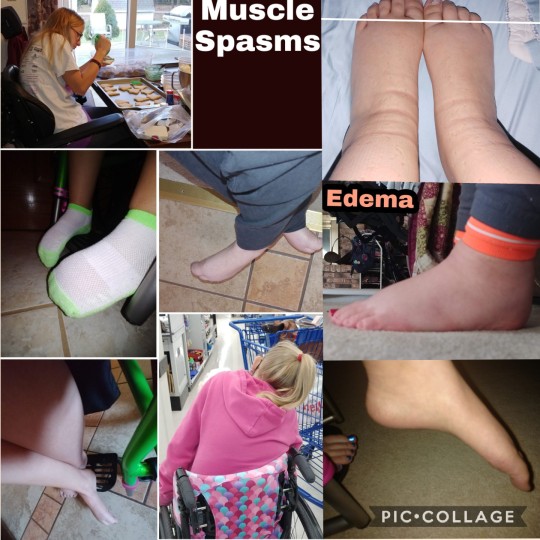
EDS is a genetic condition that affects the structure of connective tissue. There are multiple types of connective tissue but there are also multiple types of EDS so one or more types of connective tissue can be impacted. Connective tissue also makes up at least part of every part of the body so when your connective tissue is faulty and prone to damage that also means so is everywhere connective tissue is located including but not limited to the skin, cartilage, the brain, heart, lungs, GI system, liver, kidneys, bladder, Mesentery system which is the stringy organ that is around your abdominal organs that eases then and holds them in place, lymph nodes, lymph ducts, nerves, blood vessels, blood cells, nerves, bones, bone marrow, joints, tendons, ligaments, muscle sheathing, eyes, ears, nails, hair follicles, spinal cord, sweat glands, respiratory system etc. You name it, it contains connective tissue so anything can go wrong with any part of the body leaving many patients diagnosed with conditions such as conversion disorder, meaning that all of your symptoms are in your head and you're fine for years and more often, decades because we usually get diagnosed with a lot of these comorbidities before we finally find that one doctor who can put the pieces together and say, this isn't in your head, you have Ehlers Danlos Syndrome and those other conditions are very real because EDS is what caused all of them.
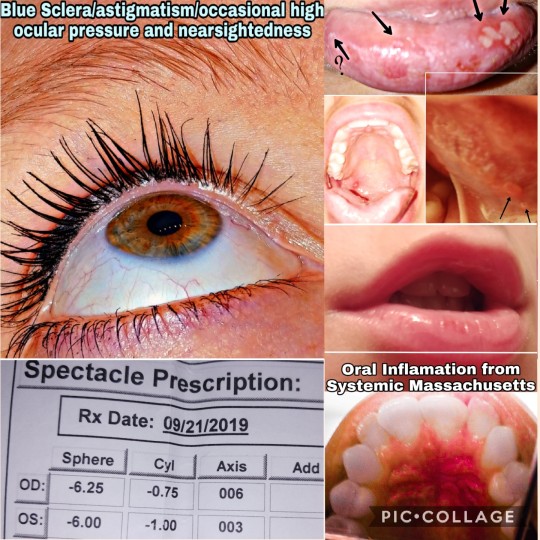
Now that we have discussed comorbidities I have dealt with countless symptoms over my life. As a kid it started with chronic pain, migraine headaches, and issues resulting from a compromised immune system because I caught everything going around and usually more than once. I don't remember a holiday as a kid where I wasn't sick or hurt. I was extremely clumsy, unable to run correctly until high-school with the very extensive help of my gym teacher. I was always falling, rolling my ankle, and just in general looking awkward with my body movements. I had multiple gym teachers who would agree that there was something physically wrong with me long before I could get any doctors to listen to my mom or as an adult, myself. I had to take special reading and writing classes because even to this day I cannot hold a pencil well or write with control because my fingers are too hypermobile to control a pencil so my writing is often illegible. I had a very severe failure to thrive, also called juvenile dwarfism, not even growing an inch between the ages of 2 and 12. My parents were told when I was 2 years old that I would be 6’4’’because I was so tall as at one and two years old that people would criticize my mom for carrying me out in public thinking I was 4 or 5 years old when I was only a year or two years old. I was 3’2” from the age of 2 to the age of 12 and of course when I was 12 I was extremely short and was bullied for my size as well as my weight which increased due to inflammation from undiagnosed celiac disease. There were multiple incidences with medical personnel and social workers as a kid because I always had such severe bruising all over my body and they believed I was abused. I didn't lose my teeth, losing only one on my own and at the age of 8 my dentist began pulling out my teeth which left me with dental crowding and requiring braces which were removed prematurely. I dealt with Learning disabilities and have been in glasses since age 4. I would pass out all the time as a kid, starting at 8 years old.
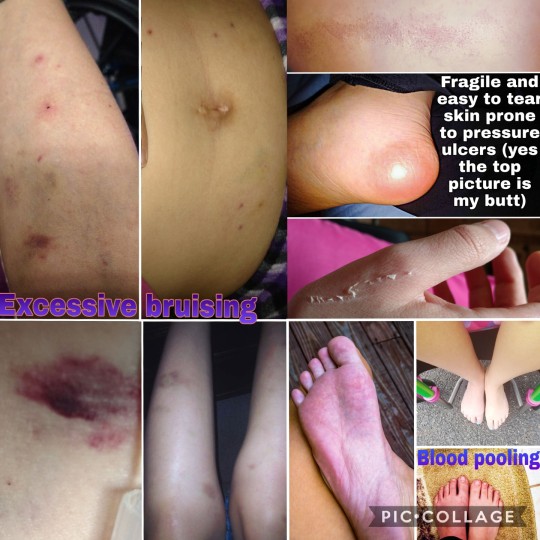
Bullying was a huge issue for me as a kid because I was socially awkward showing signs of OCD as well as being more mature than my peers due to my medical experiences and history with my siblings that forced me to grow up more quickly. That combined with issues such as my clumsiness and height made me the perfect target for bullying. I got what I believe was my first Traumatic Brain Injury when I was 9 years old while hanging upside down on the monkey bars. My bully had another student who had Down Syndrome, climb to the top of the monkey bars and lift my legs so I fell off onto my head.
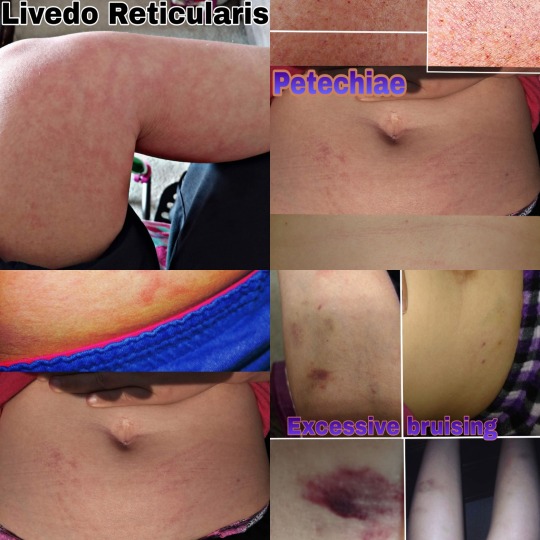
My second was in the 6th grade. The same bully would bully other kids to help her bully a bigger target of hers which was me. One day I was at my locker between classes. Our lockers were assigned in alphabetical order by last name, of course my bully's last name came right before mine so her locker was directly to the left of mine. My mom tried to get it changed but the school refused. She shoved me down between classes while I was exchanging my books and the two kids with the locker to the right of mine she had help her roll me onto my stomach on the ground, one sat on my butt and held my feet down, the other sat on my back and held my arms down under her feet. my bully yanked my head up so my forehead was on the floor of my locker and I was trying to get out so she had the girl on my back use one of her hands to hold my head down. My bully then kicked my locker door shut on my head over and over again and I went unconscious. There were two teachers in the hall at the time but they just waked into the classroom when it started. I woke up and the hall was empty. I went to the office and told them I needed them to call my mom, I needed to go home and explained what happened. They called my mom and instead of telling her the truth they told her she needed to pick me up because I was acting strange. She came and got me and found out what happened getting me treatment.
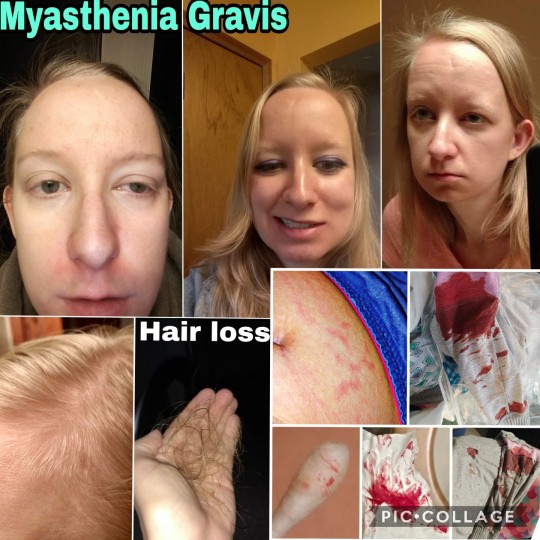
She then took me to the school a few days later since the doctor didn't want me to return for so long (I apologize I don't remember a lot from the two weeks following this so I'm going off what I was told so the exact time I was out of school, I believe was around two weeks but I'm not sure. Anyhow at the school, we met with the principal and office staff who denied any teachers were in the hall or that any of this happened. My mom demanded to see the recordings on the cameras as a hall came in at a T right behind my locker so that camera faced my locker as well as one at each end of the hall my locker was in. They tried to tell her all three cameras were broken. My mom wasn't buying it so they tried then saying the recordings were gone. they went round and round and the school flat out refused to show her the video. My mom demanded that the girl who did this be punished because she has been asking for the school to help me since I was in the first grade and this girl started bullying me but they always fail to do anything.

They tried to then give me an in school suspension which my mom refused to let them do. They still went behind her back when I returned and made me take peanut butter sandwiches to the kids in detention during my lunch as punishment because they were mad my mom came in to question the incident. They refused to punish my bully in any way and when my mom demanded to know why, they said her mom and grandmother graduated from the school so she has a lot of history with the school which years later we found out after me and 9 other kids that I know of and who knows how many others, ended up being pulled out of the same school because of her bullying that having history at the school actually turned out to mean, she was black and they would not punish her because of her color. At the end of the school year my mom pulled me out of the school not sure what to do since back then they didn't have any kind of free online schooling so pretty much everything costed money which is when my grandma stepped up and told my mom she would help because there was no way I would be going back to deal with more bullying.
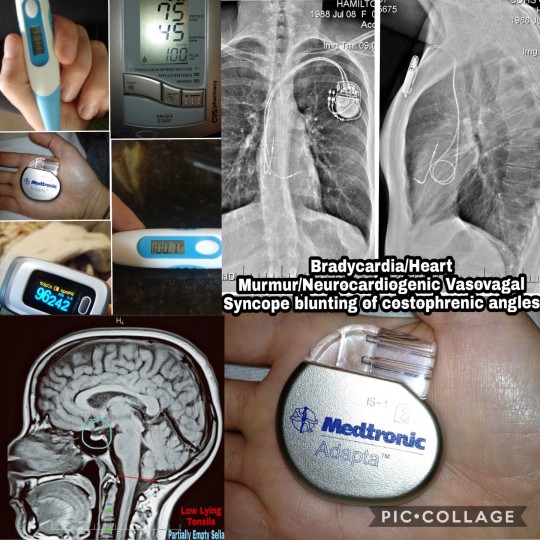
I had a ton of intestinal issues having to start colonics at around 10 years old and get my first colonoscopy around the same time. As a teen I really went down hill, struggling to eat because I had very severe nausea and cramping pain upon eating which made many of my friends believe I was anorexic but I went years without being diagnosed with gastroparesis. I started having thyroid issues and finally diagnosed with food allergies at age 14, Chest pain, palpitations, arrhythmias and trouble breathing around age 15 and seizures and cardiac arrest events at age 17.
At age 19, right before starting college I lost the ability to walk with no reason why and was sent to physical therapy to learn to walk again. The hospital visits continued in college from the seizures, emergencies from my thyroid levels going sky high or bottoming out, I started having issues with low sugar, rectal bleeding and more GI and Muscular Skeletal issues that again came to the attention of a physical education professor I had in college. The cardiac arrests continued to happen and I got an emergency pacemaker put in at age 23. Also lost the ability to walk a second time and re learned during this time.
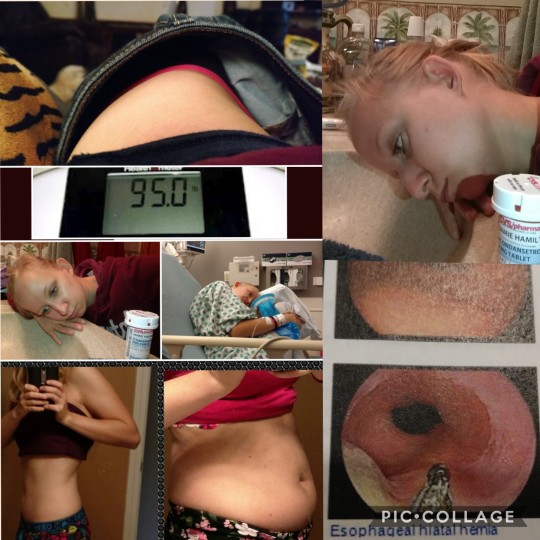
After graduating and starting working I really went down hill. My nerve pain got so bad I could hardly tolerate it and had a lot of issues with muscle spasticity. Passing out and dizzy spells got worse, seizure meds aren't working muscle weakness got again worse in my legs and I started literally wondering if I was dying, I had such severe fatigue that I slept every moment I wasn't working, bleed very badly during my period or with just mild trauma worrying my dentist so badly that he sent a letter to my doctor suggesting a possible bleeding disorder. I was going into shakes from low sugar and low sodium frequently but at the time had no idea why I would start shaking multiple times a day. Myoclonic epilepsy started and has progressively gotten worse, Dystonia started up, I started getting intestinal obstructions more often and more gastroparesis symptoms with the nausea and vomiting, sometimes cyclic vomiting. I developed a limp and went onto forearm crutches which eventually progressed to paralysis.
I have always had issues with dislocations of joints and spinal manifestations like scoliosis, Craniocervical and Atlantoaxial instability. I’m prone to non cancerous masses that could be cancerous one day including masses in my breasts, heals and between the vertebrates in my spine. My memory has deteriorated and I now have issues which I call temporary blindness when I turn my head a certain way which pinches my already compressed brainstem kinking it off so my vision is interrupted. With Systemic Mastocitosis I deal with allergic reaction type symptoms such as anaphylaxis, overproduction of mucus, coughing, hives, swelling, rashes, itching, hot flashes, flushing and more. I overheat and have hyperhidrosis. I have muscle spasms from the paralysis, dry mouth from the meds, in addition to the heart arrhythmias and trouble controlling my body temperature from the damage to my autonomic nervous system failure I have swelling of my abdomen, extreme thirst, bladder retention, abdominal cramping and more.
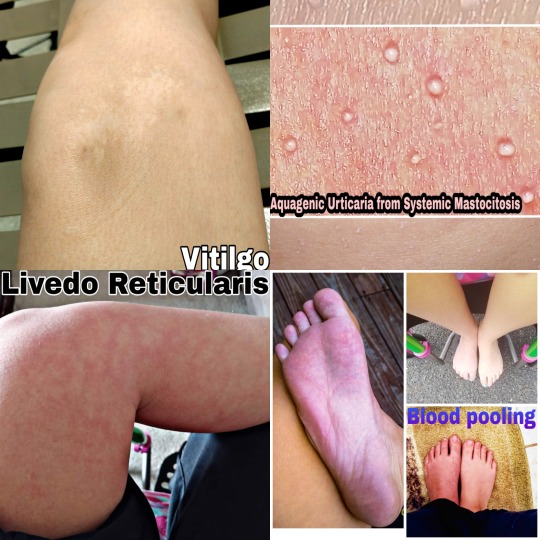
There are endless symptoms associated with EDS and it’s comorbidities which has a huge impact on your social life. You can't do the things you used to do and may come up with new hobbies and later deal with the grief associated with losing the ability to do those hobbies, in turn having to find new hobbies. You lose all or almost all of your friends because they don't like what you have become, the things you used to be able to do with them and no longer can, they don't understand if you need to cancel plans, when you lose the ability to drive they drop you cold because they don't want to pick you up many of us deal with the realization of how badly we wanted friends growing up due to our social awkwardness that resulted from our illness, time spent in the hospital, maturing more quickly, as well as the result of decades of medical abuse and neglect which in most of us has resulted in complex PTSD.
Almost all EDS patients are either on the Autism Spectrum, diagnosed with Obsessive Compulsive Disorder which some associate with social awkwardness and also the intense need for us to please people meaning many EDS patients were known as extremely hard and dedicated workers when working or in school as well as very dedicated to friends and families. We basically give our friends the clothes off of our backs meaning that most of us unknowingly befriend people who use us and are in take take take relationships where we give everything we have into a friendship or relationship while the other person gives little back resulting in most of us losing all or almost every friend we had when we get sick and no longer have anything to give. When we are no longer able to do for others those people quickly jump ship leaving us with no friends. Most of us have this very similar personality type due to our history of growing up quickly along with the shared comorbidity of Autism, OCD, and Complex PTSD.
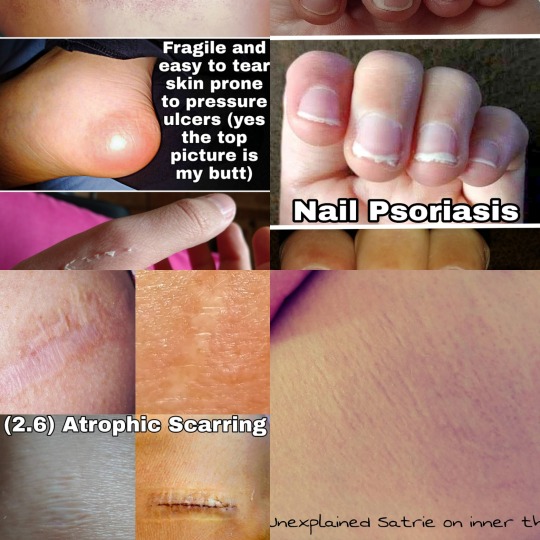
There are countless symptoms associated with EDS and they are different for each individual. Even in my case alone these are only the tip of the iceberg when it comes to symptoms I have experienced alone so EDS isn't an easy condition to live with physically or emotionally and the diagnosis can be quite the pill to swallow with little understanding from friends, sometimes family or even the medical community.
2 notes
·
View notes
Text
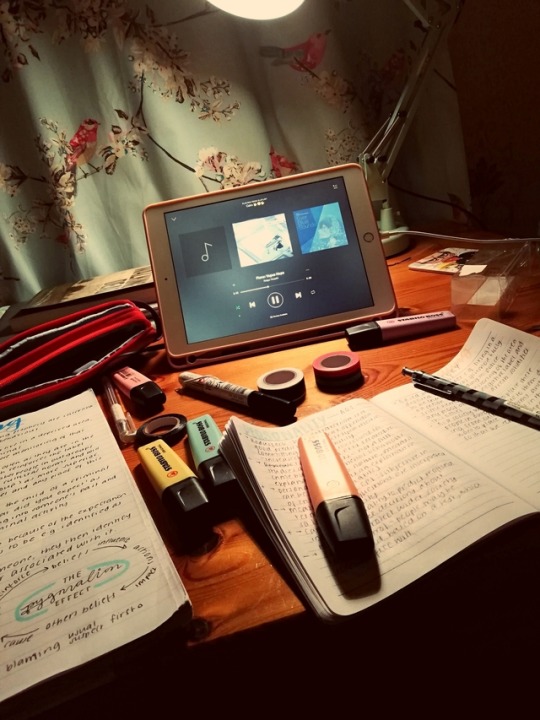
Some thoughts about going into mocks:
Well gals it's that time again: mocks. It's honestly so weird for me because the last time I did this was GCSEs and that feels like sooo long ago 😔. I just can't believe in a few months my A-Levels will be done and then I'm off to university??? It's wild yo.
Anyway I thought I'd share what I'm doing to prepare for mocks (other than crying lmaooo):
1. Staying hydrated
Yeah, yeah, every single studyblr under the earth natters on about this, but for me personally, who has issues with fainting a lot and struggles to maintain sodium levels, this is an absolute must. I don't want to to get up out my desk chair and just pass the frick out you know? It doesn't even have to be like 10 gallons either, I usually drink about 4 glasses a day and that seems to work for me so??? Try it sis 😔👍
2. Setting goals
I'm one of those people that procrastinates a lot, and procrastinates more if I set myself vague to do lists and what not. So for me, I purposely set aside topics I'll go over, and they have to be reasonable for the amount of time I have too, so for instance I'll set idk like Labelling theory content & evaluation for 45 min - 1 hour, and I find I'll stay on track and get more work done than if I set a goal like "revise psychology for an hour"
3. Feeling panicky?
Okay so, we've all done it, we've gotten to That point where we feel like we're drowning in work, nothing is getting done, everything's going wrong and oh no I've just wasted 10 minutes worrying about it when I could have been revising - sound familiar? I used to get this a lot. A LOT. And it really sucks, especially when you let it manifest. So now, when I get those thoughts, I know that's when I've reached my limit, because I'm not focusing and trying to revise would get me more worried and I'd miss information, so now I just take a deep breath, step back, and leave it. Just walk away from my desk either for the rest of the evening or for an hour or so. This way, I can recollect my thoughts but also have some downtime to help me relax.
4. Mix up your revision style ✨✨
Now okay, this might sound like common sense to the majority of people but for people afflicted with dumb bitch disease i.e. Me™ this was such a revelation for me. When I was doing GCSEs I never did any other style of revision other than notes. I'd make notes, then copy them out again, and again, and again. This, although it seemed to pay off for GCSEs, did not fly at college. I found my grades dropping and I wondered for ages why they were, it turned out I wasn't practicing exam technique enough, and that caused the drop. So, although notes helped a lot, you'll probably find you'll be better off if you mix up notes to learn content, practice papers to practice exam technique and flashcards to practice recall - it's really working for me at the minute!
5. Condense your notes!!!!
After studying psychology for a year and a half, we focus on memory for an entire module and we learn about something called cue dependant recall. This is essentially where you remember one thing which suddenly triggers a load of other things related to the first thing. I thought I would apply this to my notes for a more effective revision technique - basically I rewrite detailed notes as concisely as possible, and this way when I learn them I can suddenly remember all the details without memorising the detail word for word (if that makes sense??). I struggled at first to do this in my big notebooks, but if you invest in some little A5 ones, you're kinda forced to write concisely? (Paperchase do hella nice 3 packs that are relatively cheap 😤👌👌✨)
6. Look 👏 after 👏 yourself 👏
You may think that revising for 11 hours straight is Really Productive™ and is a Healthy Study Day™ - well sweetie, it ain't. Take it from me, someone who regularly gets stressed, works 7-9 hours straight and just doesn't eat - it really messes you up, I have deficiencies in important nutrients because of this, and I'm paying for it now with all the supplements I need to take. Also??? It makes you feel tired much faster, which means that information is probably not going in by the last few hours - not a great use of time. So, take breaks (ofc), eat properly, but also don't be afraid to have some time for yourself? Whether that be watching your favourite TV show or reading a really good book, baking, doing a skincare routine, whatever floats your boat - make time for YOU, don't let revision dictate how you should treat yourself and when, because at the end of the day you're going to be taking those exams, and if you're not in top condition, then your exam won't be either.
Woweee so I went on a bit but these are all the things that I try and stick to (we're not all perfect, but that's okay!) And I hope that I can pass on some of this advice to you guys, especially those just getting into proper exams and whatnot. Good luck this year everyone, hope you all get the grades you deserve 💗💗
#studygram#studyblr#studyspo#study motivation#study notes#advice#revision#revise#bujo#ipad study#ipadcase#ipad#goodnotes#goodnotes 4#pls look after urselves guys
13 notes
·
View notes
Text

The Top 10 Ingredients to Run Away from in Cosmetics
* @againstthemain
As requested by my beautiful and talented colleague Lisa, this article is all about the top 10 ingredients you should always avoid! If you have these in your beauty product now, I suggest you throw them out. Please make a note of these in an app or somewhere handy so you can bring it with you every time you go shopping! FYI this is my second time writing this, because I am an idiot and deleted the original by mistake! UGHHHH hahaha

#1 Sodium Laureth Sulfate (SLES)
This is detergent, yes detergent which we put on our face, and in our mouths. It is a super cheap ingredient companies love to use. Sometimes it will also be Ammonium Lauryl Sulfate. It is created from Alcohol and SULFURIC ACID! Uh ya no thank you! It is a know irritant, and sometimes contains 1,4 Dioxane. The International Agency for Research on Cancer classifies that as a group 2b carcinogen.

#2 Butylated Hydroxyanisole (BHA)
No not bha as is beta hydroxy acid, which we use in acne skincare. This is a waxy solid that is used as a preservative. The U.S. National Institutes of Health report it to be a human carcinogen. Animal studies, where they fed it to rats and hamsters (poor little guys) developed pappilomas, and carcinomas. It can also cause skin depigmentation.

#3 Triclosan (TCS) or Triclocarbon
Oh the good old 90s where companies pumped this into every frikken soap. Originally it was for hospitals to help better kill bacteria. But studies have shown that it actually makes bacteria STRONGER against antibiotics. It disrupts hormones, messes with the endocrine system, the thyroid hormone balance, and can make allergies much worse.

#4 Coal Tar (Aminophenol, Diaminobenzene, Phenylenediamine)
NOT THE SAME AS CHARCOAL. Yes this is the same stuff they pave roads with, and cover roofs, and yet people use it on their scalp and body??? It causes skin irritation, and sun sensitivity. In animal studies is consistently causes cancer. In 1775 it was the first substance PROVEN to cause cancer. Workers that were around coal tar on a daily basis sadly developed cancer from it. Long term use causes it to bind to dna and can cause tar warts, ewe. The International Agency for Research on Cancer says its a group 1 carcinogen. Which means it DIRECTLY CAUSES CANCER!

#5 Parabens
Pretty much in every beauty product ever to preserve it. For some people (such as myself) it causes rosacea and dermatitis. The FDA has seen cases of breast cancer and reduced sperm linked to parabens, yet they have not ruled it as harmful??? Methylparaben in particular, causes skin aging, and skin cancer when you go outside with it on.

#6 PEGS (Polyethylene)
The most common plastic in the world. It is found in all of those face scrubs that so many people love. The problem is when you flush it down the drain...its plastic so it doesn't decompose. Most of the time it is coated in 1,4 Dioxane which we know is a potential carcinogen.

#7 Petroleum
This one is dedicated to my mother! Lover of vaseline, I always thought it was so disgusting! Petroleum is from dead animals that get trapped under a rock for years. After the heat and pressure it creates a goo, that people than smother on their skin. It suffocates the skin, and don't get me started on how horrible to oil industry is. Because at the end of the day petroleum is drilled for just like oil.

#8 Fragrance
My arch nemesis! Fragrance is the top 5 allergen in the world! So many companies use it in decent formulas, which ruins the entire thing. I get hives and rashes like nobody's business from it. The scary part is that, by law companies just have to put "fragrance" as the ingredient. But studies show theirs over 15 chemicals inside. Just use fragrance free beauty products, and find a good organic perfume that only uses essential oils. Its higher quality and lasts longer, plus your lungs wont freak out!

#9 Oxybenzone
Found in almost every sunscreen. Just throw it out now. Don't buy it, run away from it. Use zinc or titanium dioxide. It mimics estrogen to a T, and as a gay man I don't need anymore estrogen! But for females this seriously damages your bodies and how it functions. Additionally because of beach bums, oxybenzone has bleached most of the coral reefs destroying the oceans.

#10 Hydroquinone
This is bleach, yes bleach, sadly so many people use bleach creams. But you should still double check if this is in any of your beauty products. The FDA warns that this causes Ochronosis which are blue black lesions. Whats also terrifying is when people get illegal bleach creams they almost always contain MERCURY!
Please leave a comment below on any questions you have!
And please please share this! I can’t tell you how much time was spent on this (twice lmao)
Lots of love
Jaegger
#beauty#makeup#clean skincare#natural skincare#non toxic skincare#organic skincare#skincare#cosmetics
9 notes
·
View notes
Link
You Really Don't Need to Drink Eight Glasses of Water Each Day Dr. Mercola By Dr. Mercola The common mantra that you need to drink eight 8-ounce glasses of water a day to stay healthy and hydrated may be one of the biggest health myths out there. While drinking pure water as your primary beverage is undoubtedly one of the most important cornerstones of health, there’s a misconception that you need to be chugging down water all day to stay well. In fact, a report from The National Academy of Sciences concluded that most Americans are not walking around dehydrated on a regular basis. They noted, “The vast majority of healthy people adequately meet their daily hydration needs by letting thirst be their guide.”1 The report added that while 80 percent of Americans’ total water intake comes from water and other beverages (including caffeinated beverages like coffee, which do “count” in your total fluid intake, contrary to popular belief), 20 percent comes from the food you eat. Is There Scientific Basis for 8x8? The recommendation to drink eight 8-ounce glasses (known as 8x8 for short) of water a day is often stated as scientific fact. But is it actually based on science? In a review published in the American Journal of Physiology, Dr. Heinz Valtin of Dartmouth Medical School in Lebanon, New Hampshire, set to answer this question. He was unable to find any published literature notating the origin of the rule, but potentially traced it back to an apparently offhand comment made by the late influential nutritionist Fredrick J. Stare, who was said to be an early champion of drinking at least six glasses of water a day. A book by Stare contains this (unreferenced) passage:2 “How much water each day? This is usually well regulated by various physiological mechanisms, but for the average adult, somewhere around [six] to [eight] glasses per 24 hours and this can be in the form of coffee, tea, milk, soft drinks, beer, etc. Fruits and vegetables are also good sources of water.” The New York Times suggested, meanwhile, that the source of the 8x8 myth may have been a Food and Nutrition Board recommendation made in 1945, which suggested people should drink 2.5 liters of water a day, which amounts to more than 84 fluid ounces. But, the Times continued, “They ignored the sentence that followed closely behind. It read, ‘Most of this quantity is contained in prepared foods.’”3 Many Myths Regarding Water Consumption Prevail After a thorough review of the literature as well as discussions with experts, including nutritionists and colleagues, Valtin still could find no further basis for the water recommendation that’s become a 21st century mainstay. He wrote:4 “Thus I have found no scientific proof that we must ‘drink at least eight glasses of water a day,’ nor proof, it must be admitted, that drinking less does absolutely no harm. However, the published data available to date strongly suggest that, with the exception of some diseases and special circumstances, such as strenuous physical activity, long airplane flights and climate, we probably are currently drinking enough and possibly even more than enough.” Interestingly enough, Valtin also put to rest some myths regarding water consumption, such as that waiting to drink until you’re thirsty is too late, because by then you’re already dehydrated. In reality, your body’s physiologic thirst mechanism is triggered before you’re dehydrated. As Valtin said, this makes perfect sense: “[T]hirst is so sensitive, quick and accurate that it is hard to imagine that evolutionary development left us with a chronic water deficit that has to be compensated by forcing fluid intake.”5 Valtin even suggests the idea that dark urine means dehydration is a myth, noting that the depth of color in urine is inversely linked to urinary volume, which varies significantly from person to person. While I believe checking your urine’s color is a simple way to ensure you’re drinking enough water (looking for a pale yellow color), Valtin notes that moderately yellow urine may be fine and should not necessarily be interpreted as “dark,” although some people might take it that way. “Therefore,” he states, “the warning that dark urine reflects dehydration is alarmist and false in most instances.”6 Are We Becoming ‘Waterlogged?’ Dr. Timothy Noakes is a professor of exercise science and sports medicine at the University of Cape Town, South Africa, who is perhaps best known for the book, "Waterlogged: The Serious Problem of Overhydration in Endurance Sports” — the best resource I know of for this topic. It suggests that overhydrating will actually worsen athletic performance, not improve it. According to Noakes, the first drinking guidelines put out by The American College of Sports Medicine said that runners should “drink regularly during exercise,” which is fair advice. But then an individual working for the U.S. military published a paper saying that U.S. soldiers should drink 64 ounces of water per hour in order to improve performance. Though the paper was not based on concrete evidence, it was widely embraced by the military, and then filtered through to the American College of Sports Medicine’s guidelines for runners. Today ACSM still recommends drinking “ahead of thirst,” a move that Noakes says impairs exercise performance. He uses the example of African hunters who were able to chase down an antelope for four to six hours in midday heat, without a source of fluids until after the hunt ended (when they would drink the animal’s blood and intestinal water). While most runners drink only when thirsty, some (over 36 percent) instead drink more than their thirst dictates, often to a set schedule.7 This, in turn, not only may reduce their athletic performance, but also put them at risk of exercise-associated hyponatremia (EAH). In hyponatremia, your cells, including those in your brain, swell with too much water, which can be fatal. There are also reports of asymptomatic hyponatremia, which can have consequences of its own. According to Valtin:8 “[Dilution of the plasma as reflected in mild, largely asymptomatic hyponatremia is said to be common in general practice. Moreover, nonfatal hyponatremia has been reported in a variety of circumstances. In the majority of patients, hyponatremia reflects an excess of water in the body rather than a decrease in sodium. Therefore, urging a high fluid intake on absolutely every person may well run the danger of inducing water intoxication and potentially serious sequelae, not only in the elderly but also in healthy young persons.” The Benefits of Drinking Enough Water There are clearly disadvantages to not drinking enough water, as your body is made mostly of water. In fact, your body consists of about 42 liters (11 gallons) of water, which accounts for between 50 percent and 70 percent of your body weight. Your blood is 85 percent water, your muscles 80 percent water, your brain 75 percent water and even your bones are 25 percent water,9 which signals the importance this fluid plays in your health. What happens if you don’t drink enough? The No. 1 risk factor for kidney stones is not drinking enough water, for starters. There is also some research showing that high fluid intake is linked to a lower risk of certain types of cancer, such as bladder cancer and colorectal cancer.10 Even the risk of fatal coronary heart disease has been linked to water intake, with women who drank five or more glasses of water per day reducing their risk by 41 percent compared to women who drank less. Men, meanwhile, reduced their risk by 54 percent.11 Your body also needs water for blood circulation, metabolism, regulation of body temperature and waste removal. If you are dehydrated, even mildly, your mood and cognitive function may suffer. In fact, according to a study published in the journal Physiology & Behavior, dehydrated drivers made twice the amount of errors during a two-hour drive compared to hydrated drivers.12 So the issue isn’t that water isn’t important for optimal functioning; it’s that you may not need to chug water and carry a bottle with you wherever you go in order to stay adequately hydrated. It’s unclear how many Americans are truly dehydrated, but it’s more common among the elderly and children. One study even suggested more than half of American children are dehydrated, while about one-quarter do not drink water on a daily basis.13 However, some have suggested that the value of the study used to denote dehydration may have been overly conservative — 800 mOsm (mean urine osmality)/kg or higher when 1,200 mOsm/kg may still be within the normal range.14 So How Much Water Do You Need? Drinking eight 8-ounce glasses of pure water a day may not be likely to cause you harm; it’s just that the evidence is lacking on whether that is the magic number for everyone, and most likely it appears that it is not. The reality is that some people may be dehydrated and would benefit from drinking more water each day, and from making water their primary source of fluids. However, as the Times put it, “[A]s people in this country live longer than ever before, and have arguably freer access to beverages than at almost any time in human history, it’s just not true that we’re all dehydrated.”15 Your water requirements vary depending on your age, activity level, climate and more. But you needn’t get bogged down with trying to figure out the exact amount your body needs or tracking how many glasses you’ve consumed in a day. There’s no need for that because your body will let you know. Simply using thirst as a guide to how much water you need to drink is a simple way to help ensure your individual needs are met, day by day. As mentioned, you can also use color of your urine as a guide. If it is a deep, dark yellow then you are likely not drinking enough water. If your urine is scant or if you haven't urinated in many hours, that too is an indication that you're not drinking enough. (Based on the results from a few different studies, a healthy person urinates on average about seven or eight times a day.) Ultimately, however, listening to your body and letting your thirst be your guide is your best solution for getting the water your body needs each day.
1 note
·
View note